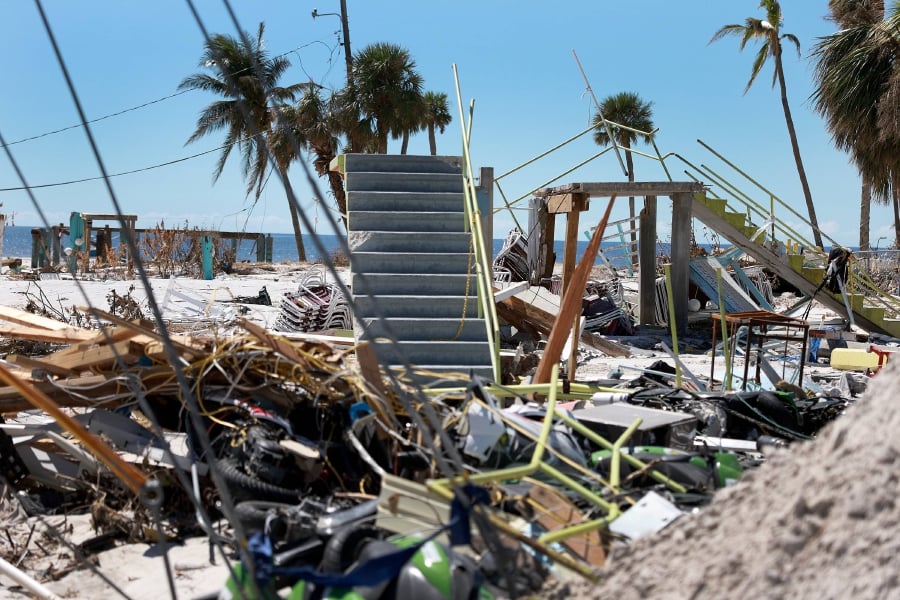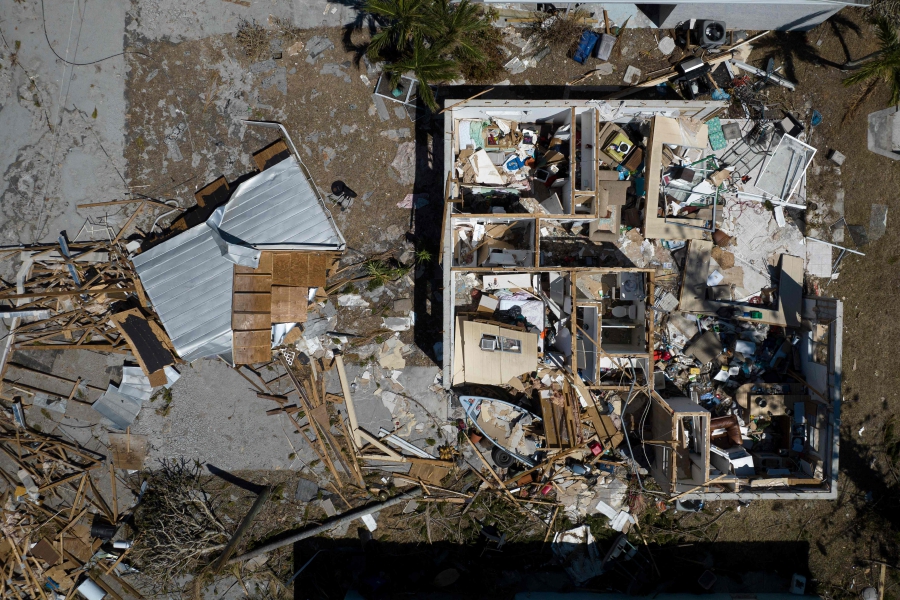NAGS Head, a quiet beachfront community of colourful wooden homes in North Carolina's Outer Banks, faces no shortage of climate change-fuelled threats, from wilder storms to rise in sea level and flooding.
A survey of some of the coastal resort town's residents, for a state resilience report released in May, found nearly 80 per cent had been impacted by flooding or hurricanes.
But as global temperatures approach a key 1.5 degrees Celsius level of warming that scientists fear could herald a transition to far costlier and deadlier climate change impacts, a new threat is rising in normally water-threatened Nags Head: wildfire.
Western US states, including California, have grown accustomed to dealing with catastrophic-scale wildfires in the face of a relentless increase in "fire weather" - conditions of record temperatures, low humidity and high winds.
But now similar threats are quietly spreading across the nation, including into states not up to now thought of as at significant risk.
North Carolina saw 5,151 wildland fires in 2021, the third most in the country after California and Texas. In March, a thousand acres burned just a short drive from Nags Head, after a fire prevention blaze went wrong.
The eastern seaboard state still ranks 23rd nationally in the area affected by wildfires, with 26,000 acres burned in 2021, according to the National Interagency Fire Centre.
But, North and South Carolina have some of the largest numbers of properties threatened by wildfire after California and New Mexico, according to a May report by First Street Foundation, a non-profit that maps climate risks.
"Wildfire risk is increasing so much faster than even flood risk across the US," said Ed Kearns, the group's chief data officer. "And it's likely to affect areas that aren't thought of as wildfire-prone areas right now, but will be soon."
Global temperatures have risen more than 1.2 degrees Celsius since preindustrial times, and oil, gas and coal use - the major driver of that increase - are still rising, despite pledges to slash emissions.
Top climate scientists say 1.5C of warming - the more ambitious warming limit set in the 2015 Paris Agreement - could be passed within a decade.

They fear that could trigger irreversible ecological tipping points, from surging sea levels as polar ice melts to spiking temperatures as methane - a potent driver of warming - escapes thawing permafrost.
A hotter planet is also expected to spark more extreme weather, crop failures, species extinctions, migration and soaring personal and financial losses for many people around the planet.
The landscape near south of Nags Head is idyllic - blue skies, dried grass and sand dunes that shield the Atlantic Ocean - but David Hallac's concern is palpable as he plucks a stalk of dried reed from the soil and crumbles it in his hand.
"Once the stalk dies like this ... this is extremely flammable," warned the superintendent of the National Parks of Eastern North Carolina.
Miles-long stretches of the reeds, invasive wetlands plants that only grow back thicker after being cut or burned, have proved a management challenge around Nags Head, and threaten to increase the fire risk to nearby homes.
"You put a match to this, and it's going to burn very, very quickly," Hallac said. Management efforts, from mowing to herbicides, are difficult given the sheer volume of the vegetation, he added.
In a community facing a wide range of climate change-fuelled risks, residents and local leaders are most concerned about worsening storms, floods and rise in sea level. That has left officials sometimes struggling to ramp up efforts to cut wildfire risks too.
Riva Duncan, a former fire management officer for North Carolina's national forests, said focusing on all the threats was a challenge in a region with "competing catastrophes".
"It's the hurricanes and the rising water – they're right in residents' faces all the time, and wildfire may not
ildfire that threatened or impacted private dwellings, (it) would become a hot topic," he said. Wildfires "are not a huge issue until they are".
The writer is from the Reuters news agency
















